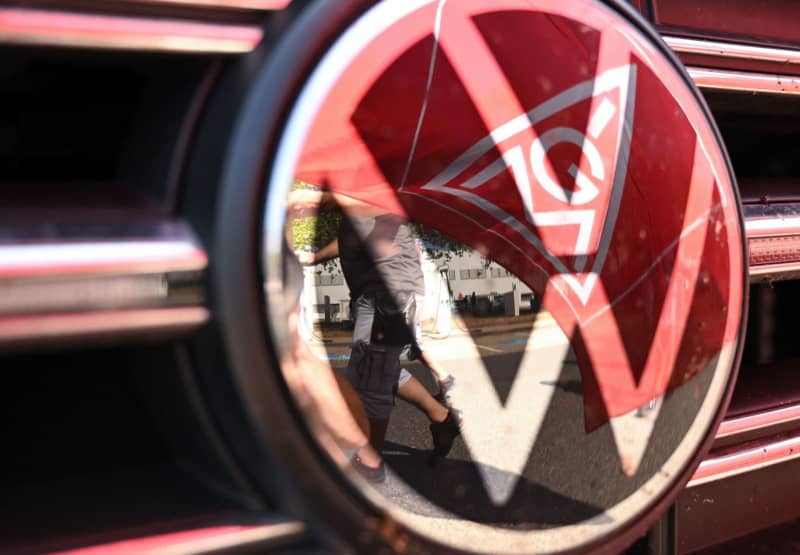Volkswagen’s executives have recently defended significant cost-cutting plans amidst speculation regarding potential layoffs totaling tens of thousands of jobs. Thomas Schäfer, the head of the Volkswagen car brand, emphasized that the company’s operational expenses in Germany have become unsustainable, stating, “We cannot continue as before.” He highlighted a stark disparity in production costs, indicating that certain German plants are now 25% to 50% more expensive than initially projected and, in some cases, twice the cost of their competitors. His comments come at a crucial juncture as the company grapples with intensifying financial pressures and strives to enhance its competitiveness in the global automotive market.
The urgency of Volkswagen’s restructuring efforts was underscored by the recent declarations from Daniela Cavallo, the head of the VW Works Council, who revealed plans to close at least three factories in Germany and downsize operations at remaining sites. Cavallo also pointed out that the company is seeking pay cuts across the board for its German workforce during ongoing collective bargaining sessions. This tense negotiation environment reflects a broader effort by Volkswagen to address financial challenges, regain market footing, and secure the necessary funds for future investments, which are critical for the company’s long-term sustainability in a rapidly changing automotive landscape.
Gunnar Kilian, the chief human resources officer at Volkswagen, commented on the critical need for comprehensive measures to restore competitiveness, indicating that without such initiatives, the company may struggle to finance essential future investments. While he did not explicitly confirm or deny the proposed job cuts discussed by Cavallo, Kilian acknowledged the seriousness of the situation and the immense responsibility resting on negotiation partners. His remarks pointed towards a collaborative approach to navigating the challenges ahead and emphasize the importance of internal discussions prior to making public announcements about the company’s future.
Volkswagen is aware that improving its return on sales is imperative; Schäfer reaffirmed their ambitious target of achieving a 6.5% return on sales by 2026. He presented this objective as a pivotal step in generating the necessary capital for upcoming investments, particularly as the automotive industry shifts towards electric and autonomous vehicles. By enhancing profitability through cost reduction measures, the company hopes to bolster its financial health and secure its position in a sector that is increasingly influenced by technological advancements and environmental considerations.
The discussions surrounding labor costs have become particularly contentious as the company prepares for scheduled talks with trade unions. Volkswagen has introduced specific proposals aimed at reducing labor expenses, illustrating its proactive stance in addressing both current economic difficulties and future operational needs. The context of these negotiations embodies the delicate balance Volkswagen must strike between maintaining workforce morale and fulfilling its obligations to shareholders and stakeholders amidst a landscape characterized by competitive pressures and evolving market dynamics.
In summary, while Volkswagen’s executives have committed to defending their cost-cutting initiatives as a necessity for survival, the landscape of labor negotiations remains complex and fraught with uncertainty. The company’s focus on reducing expenses at its German plants, enhancing profitability, and engaging in constructive dialogue with labor representatives will determine its capacity to navigate these challenges effectively. Through a combination of cost-control measures and strategic investments, Volkswagen aims to chart a path towards a more sustainable and competitive future, ensuring its resilience in the rapidly evolving automotive industry.

